Rust-Resistant Grill maintenance. Did you know that 65% of grillers clean their appliance after every use, while 3% never clean it at all? This stark contrast highlights the importance of proper care for your outdoor cooking equipment1.
Regular cleaning and maintenance not only keep your grill safe but also enhance its performance. Whether it’s a gas or charcoal model, taking the time to care for your grill ensures better heat distribution and tastier food1.
Experts recommend a deep cleaning at least twice a year, ideally in spring and fall. This simple practice can extend the life of your grill and prevent issues like rust1. Using the right tools, such as brushes and paper towels, makes the process easier and more effective.
In this guide, you’ll discover practical tips to keep your grill in top shape. From cleaning techniques to seasonal care, these steps will help you enjoy outdoor cooking for years to come.
Key Takeaways
- Regular cleaning improves safety and cooking performance.
- Deep cleaning twice a year prevents rust and extends lifespan.
- Using the right tools makes maintenance easier.
- Proper care ensures consistent heat and better food flavor.
- Seasonal maintenance keeps your grill ready for use.
Introduction: Understanding Grill Maintenance Essentials
Taking care of your outdoor cooking equipment is more than just a chore—it’s a way to ensure delicious meals every time. Proper maintenance not only keeps your appliance in good shape but also enhances its performance. Experts agree that regular upkeep can prevent issues like rust and uneven heating, ensuring your food cooks evenly and tastes great2.
The Importance of Regular Care
Daily care is essential to extend the life of your outdoor cooker. Removing ash and residue after each use prevents buildup that can lead to rust. Studies show that 60% of users neglect regular cleaning, which can cause long-term damage3. A clean surface also ensures better heat distribution, making it easier to cook your steak or vegetables to perfection.
Regular inspections are another key part of maintenance. Checking for wear and tear can save you from costly repairs down the line. For example, using a high-quality cover can reduce rust risk by up to 50%, especially in harsh weather2.
Rust-Resistant Grill maintenance
How Proper Maintenance Enhances Grilling Performance
Well-maintained equipment performs better, delivering consistent heat and temperature. This is crucial for achieving the perfect sear on your steak or evenly cooked vegetables. Research shows that grills with regular upkeep perform 15-25% better in heat distribution2.
Investing time in care also means fewer flare-ups and a cleaner cooking surface. This not only improves food quality but also makes the process safer and more enjoyable. A bit of effort now can save you time and frustration later.
By following these tips, you can overcome common challenges like residue buildup or uneven heating. This guide will show you how to keep your outdoor cooker in top shape, ensuring every meal is a success.
Essential Daily Care and Cleaning Practices
A clean cooking surface is key to great-tasting meals every time. Daily care ensures your equipment performs well and lasts longer. By following simple steps, you can prevent issues like residue buildup and uneven heating.
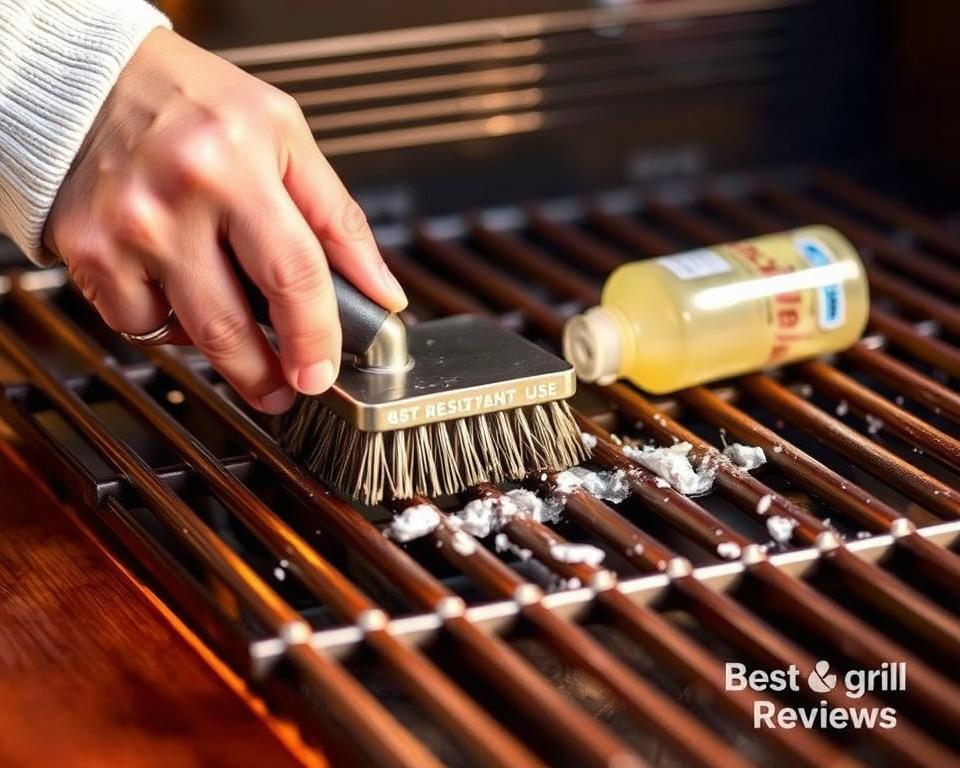
Cleaning the Grill Grate Effectively
Start by preheating the grate to burn off stuck-on food particles. This step makes cleaning easier and more effective. Use a dedicated brush to scrub the surface thoroughly, removing any remaining residue.
For tougher grease deposits, a bit of cleaner and a paper towel can work wonders. Studies show that regular cleaning reduces harmful bacteria by up to 90%, ensuring a safer cooking environment4.
Managing Ash and Residue for Longevity
Ash buildup can trap moisture, leading to rust and other issues. Empty the ash tray after each use to prevent this. A small residue left behind can impact performance over time5.
Here’s a quick guide to daily cleaning:
| Step | Action |
|---|---|
| 1 | Preheat the grate for 10 minutes. |
| 2 | Scrub with a brush to remove food particles. |
| 3 | Wipe with a paper towel for tougher grease. |
| 4 | Empty the ash tray to prevent moisture buildup. |
By following these steps daily, you can keep your equipment in top shape. Regular care not only extends its lifespan but also ensures better cooking results every time.
Step-by-Step Guide to Oiling and Protecting Your Grill
Oiling your grill is a simple yet effective way to enhance its performance and longevity. Proper techniques not only prevent food from sticking but also create a protective layer against wear and tear. Here’s how to do it right.
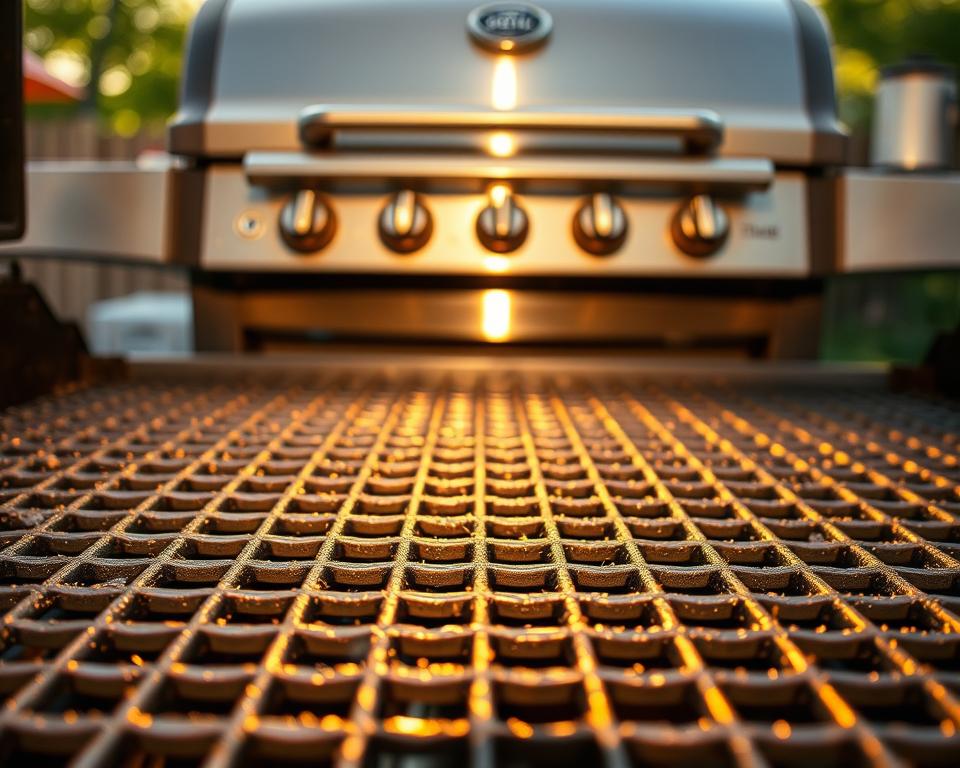
Rust-Resistant Grill maintenance
Proper Oiling Techniques to Prevent Food Sticking
Start by preheating the grate for about 10 minutes. This step helps burn off any residue, making it easier to apply oil evenly. Use a high-temp cooking oil like refined avocado oil, which has a smoke point of 520°F, ensuring it won’t burn off too quickly6.
Fold a paper towel, dip it in oil, and use tongs to rub it across the grate. This method ensures an even layer without over-saturating the surface. Experts recommend oiling right before placing food on the grate for optimal results6.
Pro Tip: Avoid over-oiling, as excess oil can cause flare-ups. A little goes a long way in creating a nonstick surface and protecting against rust.
Post-Cooking Practices that Minimize Grease Build-Up
After cooking, let the grate cool slightly but remain warm. Use a dedicated brush to remove any food particles. This prevents grease from hardening and becoming difficult to clean later7.
For tougher residue, wipe the grate with a paper towel dipped in oil. This not only cleans but also reconditions the surface, maintaining its nonstick properties. Regular cleaning after each use ensures a smoother cooking experience next time6.
Finally, store your grill in a dry place or use a cover to protect it from moisture. This simple step can significantly extend its lifespan and keep it ready for your next outdoor meal.
Maintenance for Cast Iron and Stainless Steel Components
Understanding the unique care needs of cast iron and stainless steel components ensures your outdoor cooking equipment stays in top shape. Each material requires specific techniques to maintain its performance and longevity. Proper care not only prevents damage but also enhances the cooking experience.
Cleaning and Seasoning Cast Iron Parts
Cast iron parts need regular seasoning to prevent rust and maintain their nonstick properties. Start by applying a thin layer of vegetable shortening to the surface before the first use8. This creates a protective barrier that keeps food from sticking and reduces the risk of corrosion.
After each use, clean the cast iron with warm water and a soft brush. Avoid harsh cleaners that can strip the seasoning. Once clean, apply a light coat of oil and heat the part to seal the layer8. This simple routine keeps your cast iron in excellent condition for years.
Gentle Care for Stainless Steel Grills
Stainless steel components require a different approach. Use a mild cleaner and a soft cloth to wipe the surface after each use. Avoid abrasive tools or bleach-based products, as they can damage the protective coating8.
For tougher stains, a mixture of baking soda and water works well. Rinse thoroughly and dry with a clean towel to prevent water spots. Regular cleaning maintains the shine and durability of stainless steel, ensuring it looks great and performs well.
- Season cast iron before and after each use to preserve its nonstick surface.
- Clean stainless steel with gentle products to avoid scratches and rust.
- Store both materials in a dry place to prevent moisture damage.
By following these tips, you can confidently care for each part of your outdoor cooking equipment at home. Proper maintenance ensures consistent performance and extends the life of your grill.
Advanced Rust-Resistant Grill Maintenance Tips and Strategies
Advanced care techniques can transform your outdoor cooking experience. Going beyond basic cleaning, these strategies help prevent rust and extend the life of your equipment. Experts agree that even small amounts of residue, if left unchecked, can lead to significant issues9.
Expert Recommendations from Leading Grill Resources
Leading grill resources emphasize the importance of regular upkeep. For example, soaking grates in a mixture of vinegar and baking soda overnight can significantly reduce the effort needed to scrub off burnt-on food9. This simple step ensures a cleaner surface and prevents rusting.
Another expert tip is to use 304-grade stainless steel for its superior rust resistance. This material contains at least 10.5% chromium, which is essential for corrosion resistance10. Regular cleaning with oil-based cleaners once a week can maintain its appearance and functionality10.
“Preventing rust starts with consistent care. Even one extra step, like oiling the grate after each use, can make a major difference in the grill’s lifespan.”
Preventing Corrosion Through Regular Upkeep
Detecting early signs of rust is crucial. Inspect your equipment regularly for chips or scrapes, especially on porcelain-coated grates. These imperfections can expose the metal underneath, leading to rust formation9.
Here’s a step-by-step strategy to maintain every part of your outdoor cooker:
| Step | Action |
|---|---|
| 1 | Inspect for chips or scrapes on the grate. |
| 2 | Soak grates in vinegar and baking soda overnight. |
| 3 | Clean stainless steel parts with oil-based cleaners weekly. |
| 4 | Apply a light coat of oil to cast iron components after each use. |
Experienced users incorporate these advanced routines as part of their standard checklist. Regular upkeep not only prevents rust but also ensures better performance and tastier food10.
Seasonal and Weather-Related Grill Preservation
Seasonal changes can significantly impact the lifespan of your outdoor cooking equipment. From humid summer days to rainy autumns, weather conditions demand specific care to keep your grill in top shape. Proper preservation techniques not only extend its life but also ensure consistent performance throughout the year11.
Preparing Your Grill for Rainy and Humid Days
Rain and humidity are two of the biggest threats to your outdoor cooker. Moisture can accelerate rust formation, especially on cast iron parts. Experts recommend using silica gel packets to absorb excess humidity, reducing the risk of corrosion during damp months11.
Regular cleaning is essential to prevent grease and food residue from trapping moisture. Studies show that 70% of grill corrosion is caused by trapped moisture, making it crucial to clean the surface thoroughly before storing12.
Using Grill Covers and Protective Measures
A high-quality cover is one of the best investments for protecting your grill. Covers shield the surface from rain, snow, and UV rays, preventing damage caused by prolonged exposure. The average cost of a cover is around $50, compared to the $300+ cost of replacing a damaged grill12.
Here are some tips for using covers effectively:
- Ensure the grill is completely cool before covering it.
- Choose a cover made from durable, weather-resistant materials.
- Store the grill in a dry place when not in use.
By following these steps, you can keep your outdoor cooker in excellent condition, ready for use whenever the weather clears11.
Conclusion
Keeping your outdoor cooking equipment in top shape doesn’t have to be complicated. By following a few simple steps, you can ensure it performs well for years. Regular cleaning after each use prevents buildup and keeps the grate in excellent condition. Applying a light layer of oil helps protect against rust and prevents food sticking during cooking13.
Whether your equipment is made of iron or stainless steel, consistent care is key. Using a brush to remove residue and storing it properly ensures it stays ready for the next use. These small efforts add up, making every cooking session more enjoyable.
Start applying these tips today to see the difference. A little extra time spent on upkeep ensures your outdoor cooker remains a reliable part of your kitchen setup. With consistent care, you’ll enjoy better results and extend its lifespan significantly.

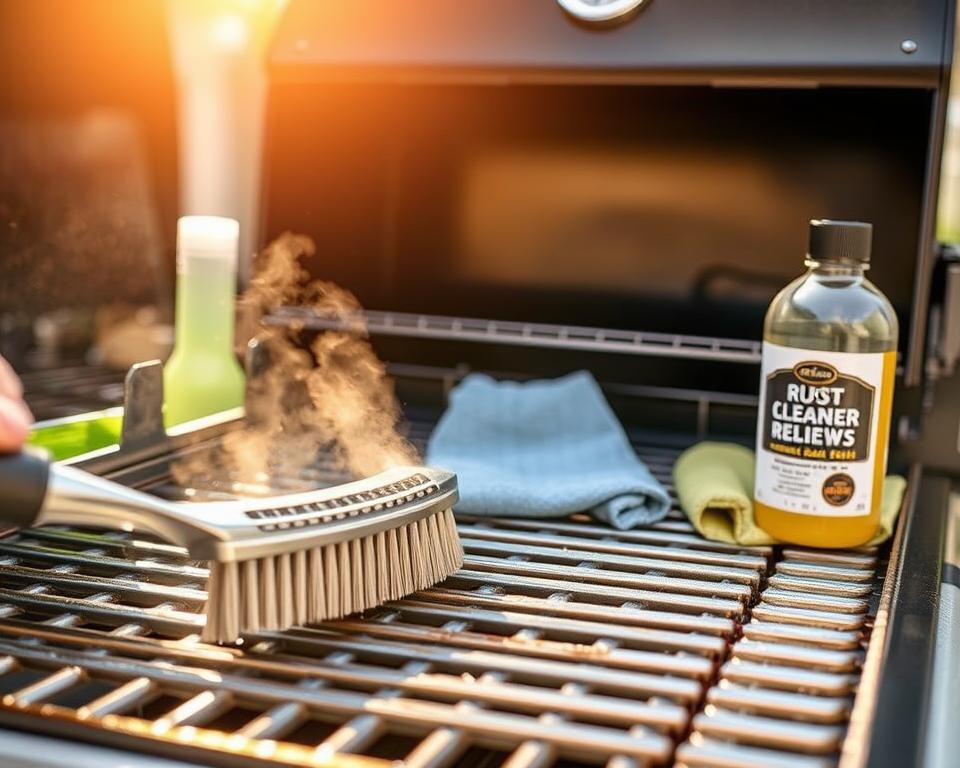
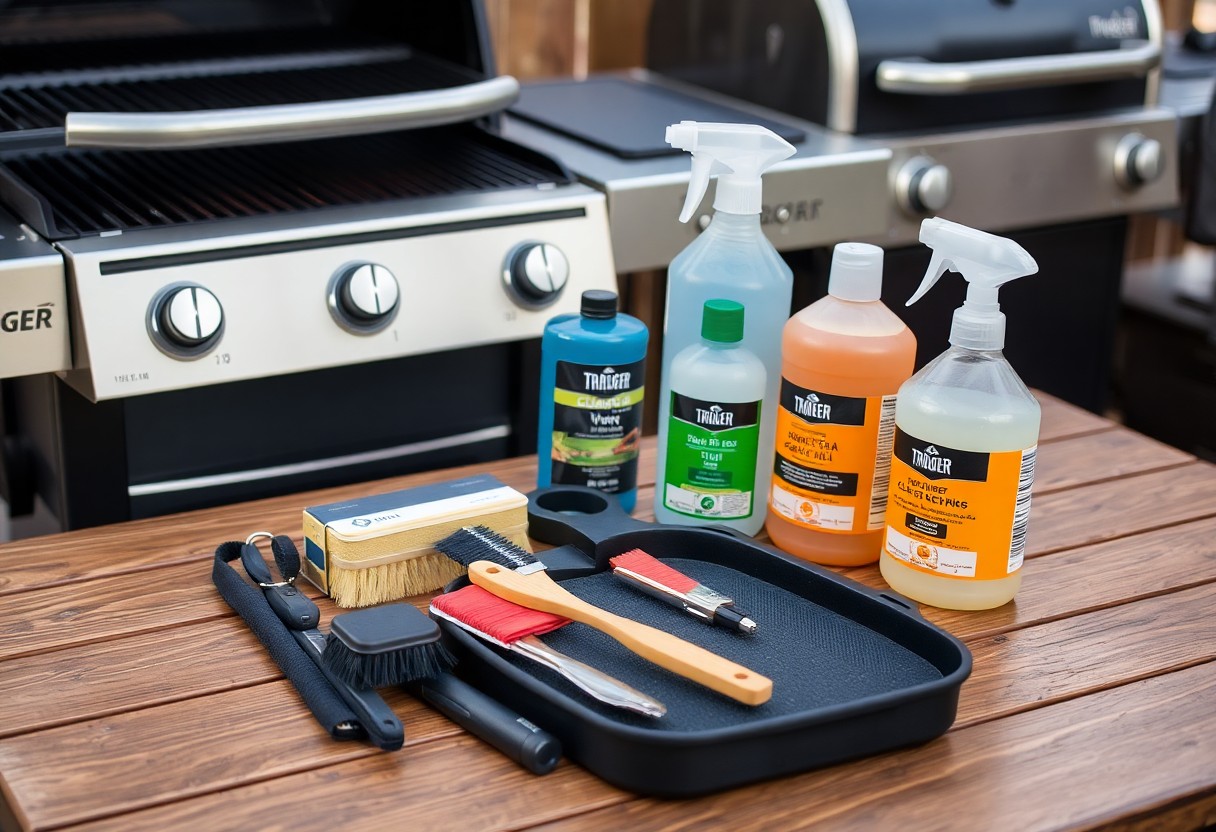
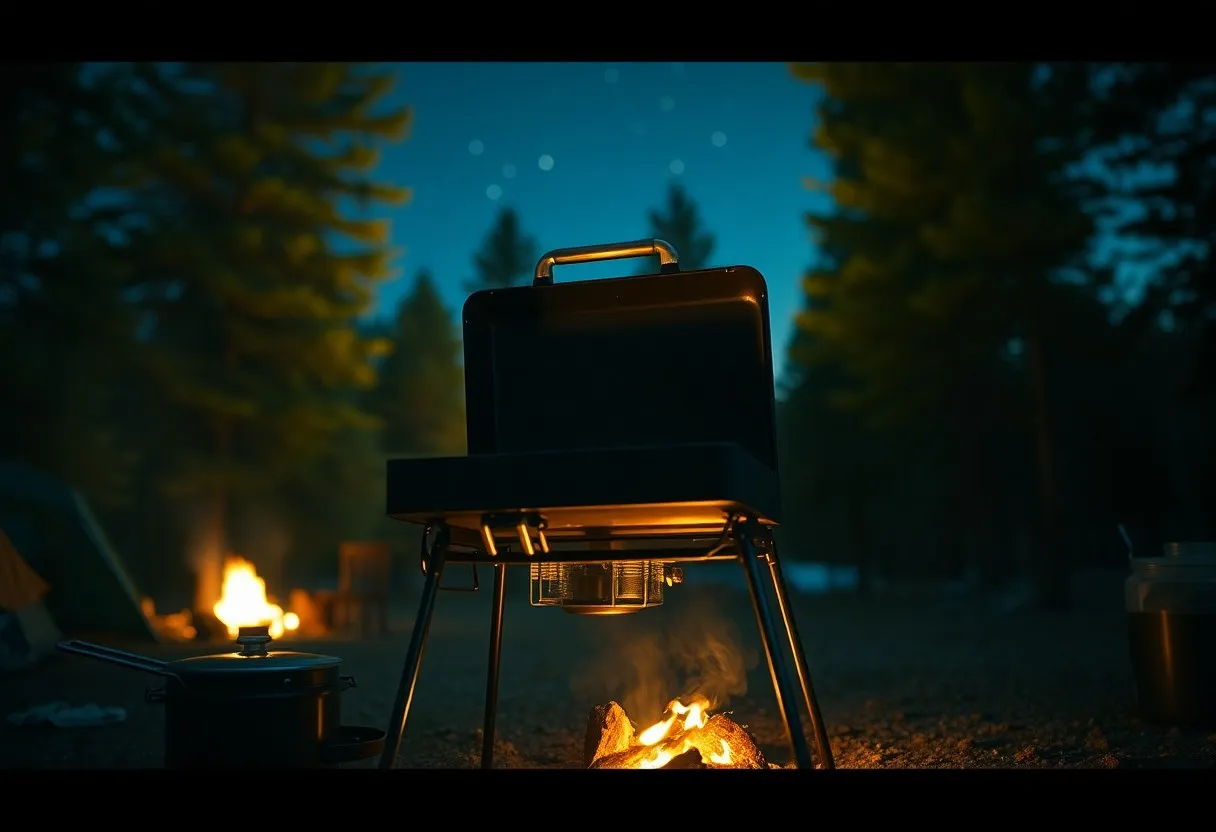
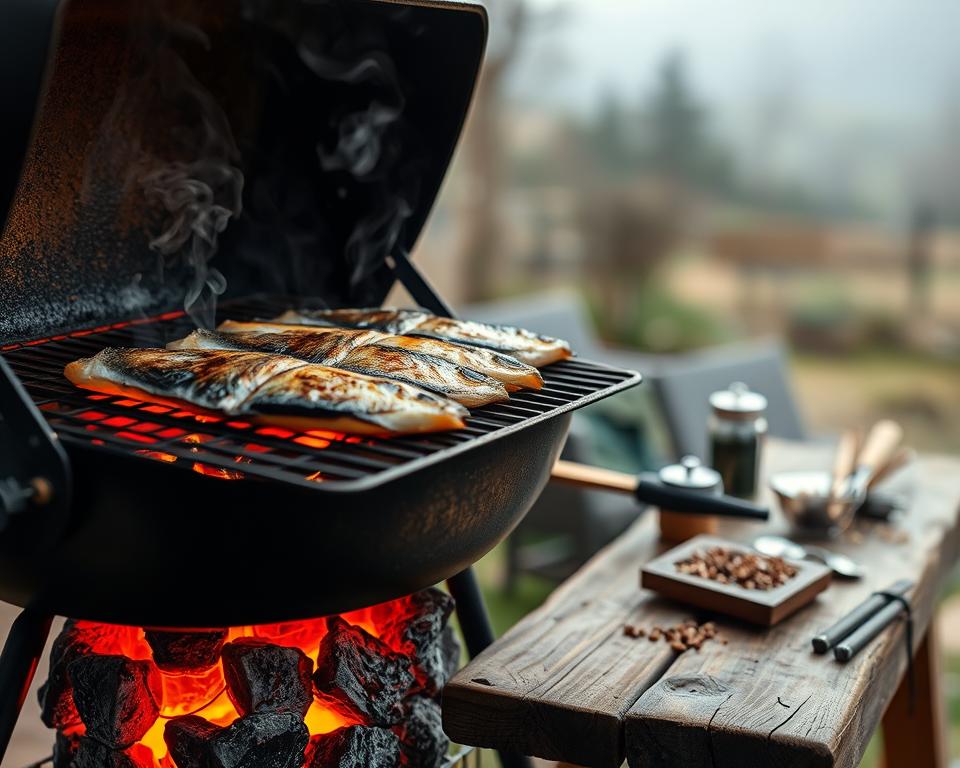
Leave a Reply